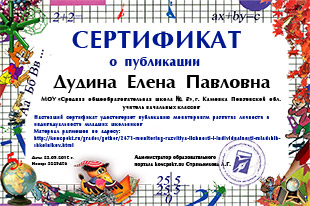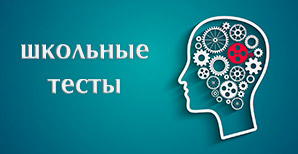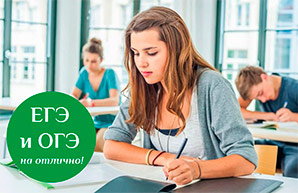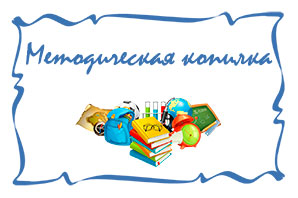Интегрированный урок английского языка и истории "Символы Победы – Символы Кубани"
Цели урока:
- познакомить учащихся с военной историей Кубани;
- воспитание у учащихся любви к Родине, чувства гордости за свой народ, уважения к его подвигам;
- воспитание патриотических чувств на примерах героизма, храбрости и мужества жителей Кубани.
Ход интегрированного урока
English teacher: Dear pupils and guests! Our extracurricular activity today is devoted to the Victory in the Great Patriotic War.
- The main aims are to know more about the military history of Kuban and to cultivate in our hearts feelings of love and respect for our Motherland, for the people who fought for our freedom and independence
- What anniversary of the Victory are we celebrating this year?
- When will we celebrate it?
- The theme of our activity is The Symbols of Victory – the Symbols of Kuban.
- What Symbols of Victory can you name? (Учащиеся называют символы Победы по их мнению)
Well done! And how do you understand the theme: The Symbols of Victory – the Symbols of Kuban. (учащиеся выражают свои мнения)
Учитель истории говорит о жестокости войны и о важности Победы над фашизмом.
English teacher: Now let’s speak about Hero men of the Great Patriotic War – the main symbols of the Victory.
- We live in Korenovsk – in the heart of Kuban. Let’s speak about heroes of Korenovsk.
Учащиеся, получившие заранее задание подготовить информацию юных героях Кореновска Кларе Навальневой, чье имя носит школа, и Венере Павленко, именем которой названа одна из улиц Кореновска, представляют учащимся свое сообщение.
Учитель истории рассказывает о И.Д. Бувальцеве, организаторе подпольного движения Кореновска. Затем учащиеся смотрят видеофрагмент о 298 истребительном авиаполке и о летчике асе А. Покрышкине.
English teacher: We said that monuments were Victory symbols as well.
- Two pupils had a special task – to prepare a videoproject about monuments in our native town – in Korenovsk.
Учащиеся просматривают видеоролик о памятниках Кореновска на английском языке.
Учитель истории: Так какие памятники, посвященные ВОВ есть в Кореновске?
- Мы также назвали такую категорию символов, как города-герои. (учитель истории рассказывает, почему городам присваивалось звание Город-герой, и знакомит учащихся со списком городов-героев)
English teacher: A group of pupils got special tasks to visit, explore and prepare videoprojects about our glorious cities.
- Let’s watch Artem’s videoproject about the Hero City in our region. It is ... (учащиеся заканчивают предложение)
Учащиеся смотрят видеоролик о городе-герое Краснодарского края Новороссийске на английском языке.
So,
- When was Novorossiysk named a Hero City? (14 September, 1973)
- What Memorial did Artem tell about? (Malaya Zemlya)
- How long did marines defend this area? (225 days)
Учитель истории говорит о важности боев в приморских городах Кубани – выход к морю, наличие нефти – горючего для танков, самолетов.
Далее учитель истории рассказывает, почему городам присваивалось звание "Городах воинской славы", сколько всего таких городов, называет города воинской славы Кубани.
English teacher: So, how many Cities of Military Glory are there in Kuban? And what are they? (учащиеся отвечают)
- That’s right. Let’s watch Sveta and Sasha’s videoproject about Tuapse.
Учитель истории:
- Когда городу было присвоено звание Город Воинской Славы?
- Сколько человек погибло, защищая эту территорию?
- Память о каком герое увековечена на Аллее Славы?
English teacher: And now let’s watch Alexandre’s videoproject. He visited Anapa – the second City of Military Glory in Kuban.
- When was Anapa named the City of Military Glory?
- What monument did Sasha tell us about?
Учитель истории: Итак, давайте подведем итоги. Вспомните, о каких Символах победы – Символах Кубани мы говорили сегодня.
- О каких героях Кубани вы сегодня узнали?
- Памятниках?
- Город-герой Кубани?
- Города Воинской Славы?
English teacher: Did you like our activity? (учащиеся отвечают)
- Thanks. And I want to thank you and especially those of you and your parents who prepared videoprojects. You did a great and useful work not only for yourselves but for everyone here !
- Here is a brochure (учитель демонстрирует брошюру) in which information about hero men, monuments, the Hero City, Cities of Military Glory of Kuban is presented.
- Do you want to be volunteers and share this information?
- You’re well done! So You’re to present it to pupils of our primary school and 5-th forms.
Учитель истории рассказывает о важности знать свою историю. (учитель английского языка раздает брошюры)
English teacher: Now, pupils stand up, please. A minute of silence as a gesture of respect for those who died at this terrible war, gave their lives for our Motherland.
Минута молчания
- At the end let’s sing a famous song "The Day of Victory" to honor all people who were killed and who survived in fighting for our freedom and independence, to honor your grandmothers and grandfathers, your great-grandparents! (Учащиеся поют песню "День Победы" на английском языке)



